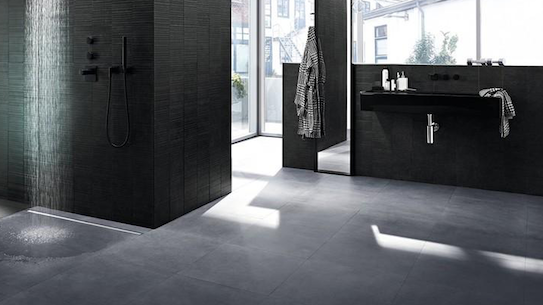Why Does Your Shower Drain Keep Backing Up?
Oct 20, 2021 11:49
Experiencing your shower drain backing up is not a pleasant experience, and this may cause you to think something is critically wrong with your plumbing system. Yes, this is a problem, but a proper understanding of why it happens and a little introduction to the things you can do to take care of that can help you stay calm when faced with this plumbing issue.

In this article, you will learn why your shower drain is backing up. However, it is essential to understand that understanding does not necessarily mean you can fix everything yourself. Where the problem persists, it is advisable to get a professional plumber to look into it and provide a lasting solution.
How does the shower and home sewer system work?
A sewer system is a critical plumbing infrastructure that keeps the house clean and helps prevent waterborne disease. Generally, a home sewer system is designed to carry out wastewater. This system carries it from your house to a city sewer system that ensures the final transfer of waste. A house's sewer system consists of several pipes and components linking every plumbing system to a particular main sewer. Therefore, toilets, showers, bathtubs, sinks, and other appliances are connected to this primary system to dispose of wastewater properly.
What can cause a drain backing up into the shower?
When you are experiencing your shower drain backing up, here are things to consider:
• Other components of the plumbing system are clogged
Suppose you wonder why clogs in other plumbing parts of your house can cause your shower drain to back up. As explained above, the plumbing system in your home is connected. Hence, a problem in one part can result in a clog or backup in another.
The plumbing system consists of the main sewer and other secondary lines. The system is connected to the extent that when other components are clogged, it directly affects the main sewer, resulting in water building up in your shower.
Also, a clog in other sewer lines, like toilets, can cause the shower drain to back up because this component is closer to your shower drain. It can also cause excess water to enter your shower.
It is not advisable to ignore shower drain backup, especially when it is caused by a clogged main sewer line. There is an urgent need to attend to this through the help of a professional plumber. Learn more about drain cleaning services by visiting this site.
• The shower drain is clogged
The reason for the backup back can be that the drain is clogged. What causes the drain to clog does not necessarily need to be heavy things. Often, it can be due to products you least expect. For example, bath bombs often contain large particle salts and plant flowers that make them enjoyable and effective to use for relaxation and other benefits. However, these are not all friendly to your shower as they can roll up and clog the drain. Similarly, washing your hair needs to be carefully done to ensure that hair does not obstruct the drain.
When all of these come together and are left unattended, they often create a significant barrier that prevents water from escaping the drain and can cause the shower drain to back up.
How to deal with shower drain backup
When your shower drain backup results from clogs in secondary lines, you can attend to this home by trying some home remedies.
• Using baking soda and vinegar
When dealing with clogs from rolled-up hair, oil, and other sources, you can dissolve the clog by mixing baking soda and vinegar. Pour this mixture on the clog and wait for 7 to 10 minutes, then flush the clog. This will naturally remove the clog, but it works for only minor ones.
• Using plumber's snake or wire hanger to break clogs
The above DIY may not work if the clog is a little bigger. However, there is another tactic to try at home. You can use a plumber's snake to break the clog by inserting this tool deep into the drain. It will locate the clog and break it. You can then flush it down.
If you cannot get a plumber's snake, you can also use a wire hanger to do this. Just insert it carefully to avoid scratching the tub and rotate it to break the clog.
Conclusion
While it is understood that these simple home techniques can work on some clogs, but they may not work on others. This is why it is highly recommended that you use the expertise of a plumber. Where the problem persists, you may want to try out clog removal solutions. However, these chemical agents can eat through your metal pipes and cause more problems, which is why homeowners are often advised not to use them.







































































